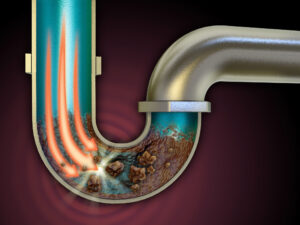A well-functioning boiler is key to keeping your home warm and comfortable, especially in the colder months. But what happens when your boiler starts to show signs of wear and tear? Recognizing the early warning signals of a failing boiler can save you from cold nights and expensive repairs.
Boilers can give off clues when they are about to break down. Strange noises and peculiar smells can indicate underlying issues. Sometimes, the pilot light doesn’t behave as it should, signaling a potential malfunction. These symptoms, if caught early, can prevent a complete system failure.
By understanding the common signs of a malfunctioning boiler, you can stay ahead of any problems. Knowing when to schedule a professional check-up for your boiler means you can keep your home warm without interruption. Stay tuned as we explore how to spot these issues before they lead to bigger headaches.
Recognizing Common Signs of a Malfunctioning Boiler
Strange Noises and Odd Smells
Boilers can occasionally make odd noises, but if your boiler starts popping, banging, or whistling more frequently, it might be trying to tell you something. Louder-than-usual bangs could mean sediment is gathering in the tank, blocking the flow of water. Whistling might be caused by trapped air or low water pressure, while humming suggests electrical issues needing attention.
Smells can also indicate problems. Never ignore the scent of gas or burning, as these can signal serious hazards. A gas smell means there’s possibly a leak, requiring immediate expert intervention. A burning odor hints at an overheated component or electrical wires melting, needing swift action to prevent a fire.
Unusual Pilot Light Behavior
The pilot light is like the heartbeat of your boiler. A steady blue flame is a good sign. However, if you notice it flickering or turning yellow, there may be an issue. A yellow or orange flame could mean your boiler is not burning the gas correctly, which can lead to carbon monoxide build-up — a colorless and odorless gas that’s dangerous to inhale.
Frequent pilot light outages might suggest problems with the thermocouple or gas supply. Keep an eye on the pilot light; it offers valuable insights into your boiler’s health. By addressing these signs early on, you can avoid more serious issues down the road and keep your home heated reliably.
Understanding Temperature Fluctuations and Their Causes
Inconsistent Heating Performance
One clear sign of boiler trouble is when your home isn’t as warm as it should be. If you find that your heating is no longer consistent, it might indicate your boiler is beginning to fail. You might notice some rooms are significantly colder than others or that it takes much longer to heat up. This can be caused by a faulty thermostat, an outdated heating element, or sediment blocking the water passages, reducing heat distribution.
Pay attention to any sudden drops in temperature or irregular heating patterns. Both can be indicators that something isn’t working right. Ignoring these signs could lead to a complete boiler breakdown, so catching these issues early can save you from a chilly surprise.
Signs of Inefficient Energy Use
If your energy bills start climbing without any evident explanation, your boiler might be the culprit. An inefficient boiler uses more fuel to do the same job, causing your bills to soar. This skyrocketing cost could be due to worn-out components, dirty burners, or an old system that is struggling to keep up with your household’s demands.
To spot this, compare your current energy usage with past records, especially during similar weather conditions. Look for spikes that don’t match your regular patterns. Keeping track of this can help you spot patterns that indicate the boiler is using more energy than necessary.
Regularly monitoring your boiler’s performance helps you maintain it efficiently. By understanding why temperature fluctuations occur, you can take preventive measures before they turn into significant, costly repairs.
Identifying Leaks and Corrosion Issues
Water Leakage Around the Boiler
Leaks around your boiler are a clear signal that something is wrong. Even a small puddle can indicate a problem that needs immediate attention. Leaks typically mean that a seal is failing or a component has developed a crack. This not only affects the boiler’s efficiency but can also cause water damage to your home.
Spotting leaks early can prevent bigger issues from developing. Regularly check for moisture around the base and look at the pipes connected to your boiler. If you find any dripping or pooling, it’s time to call for professional help. Ignoring these signs can lead to increased water bills and further damage to your system.
Rust and Its Impact on Performance
Rust is a major enemy of your boiler’s performance. When metal parts start to rust, they weaken and can lead to leaks or complete breakdowns. Check for signs of rust on the external casing and any visible internal parts, particularly if your boiler is older. Rust can spread quickly, so catching it on time is essential to maintaining your system’s efficiency and longevity.
If left unchecked, rust can corrode important parts, causing malfunctions that are costly to repair. Regular inspections can help catch rust in its early stages, preventing further damage and ensuring your boiler runs smoothly.
When to Schedule a Professional Inspection
Frequency of Check-Ups
Regular maintenance is the key to preventing boiler breakdowns. You should have your boiler professionally inspected at least once a year. Annual inspections help identify potential problems before they become serious, saving you money and hassle down the line.
During these check-ups, a professional will clean and test the system, ensuring everything functions correctly. This routine maintenance can extend the life of your boiler and keep the heating system running efficiently throughout the year.
Importance of Detailed Maintenance Reports
Keeping detailed records of your boiler’s maintenance can be invaluable. These reports help track what work has been done and any recurring issues that need to be addressed. A well-documented history allows technicians to diagnose problems more quickly and accurately.
If you’re ever considering selling your home, having a detailed maintenance record is an added bonus that can reassure potential buyers about the condition and care of your home’s systems.
By staying proactive about maintenance, you ensure that your boiler runs effectively and supports a warm home environment.
Conclusion
Taking the time to understand the signals your boiler gives can save you from unexpected cold nights and costly repairs. From recognizing strange noises to addressing leaks early, these proactive measures make a significant difference in the long run. Ensuring consistent performance through regular inspections helps maintain comfort and efficiency in your home.
For reliable boiler care, schedule a service with Glasscock Plumbing Services. Our experts can handle everything from routine maintenance to complex repairs, ensuring your system stays in top condition. Don’t wait for a breakdown; let us help keep your home warm and cozy. Reach out today to book emergency boiler repair and give yourself peace of mind.

















